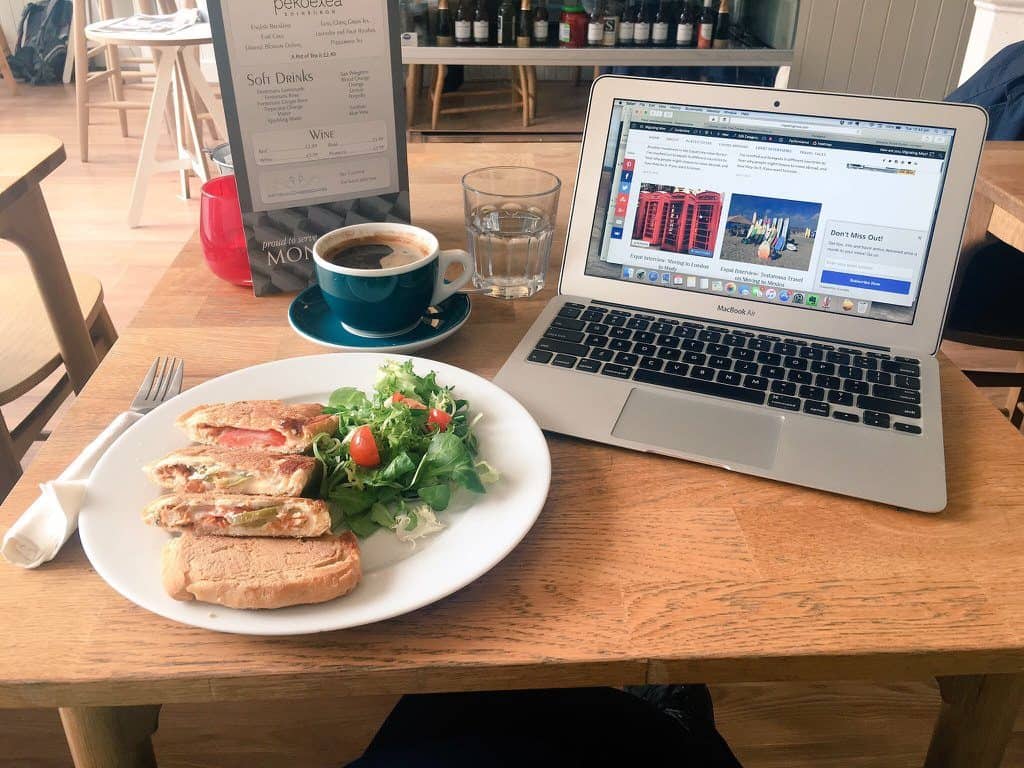Blogging these days seems to be all about finding a “niche”. Every article about starting a blog emphasises the importance of needing a niche.
But what does that mean and how do you actually find it?
When I started blogging I don’t think I really understood what exactly a niche was or why it might become something really important to me as the years went by.
So to stop you from drawing a blank or having to vaguely answer with uncertainty every time someone says “What’s your blog about?” I’ve finally written this post!

What is a niche?
In blogging, a niche refers to a specialisation. Your niche is generally your main focus. It’s what you write about the most, and most likely the audience you’re targeting your blog at.
It can be fairly broad, or very specific.
In travel, a broader niche might be a certain type of traveller, like solo travellers, family travellers, etc. Or a narrower niche could be a specific destination like a country, region, or even city.
You could also combine both these things and write about family travel in a certain country, or something similar.

Why do you need a niche?
There are a few different reasons why having a niche is beneficial.
Notice I don’t say crucial or necessary, and I’ll explain why soon.
A niche can definitely help if you’re trying to make a profitable blog. For example, in 2020 we started a new food blog called Scottish Scran that is solely about Scottish food and drink.
This is quite specific and has allowed us to quickly target people who are interested in the topic, generate traffic, and begin earning some money from it.
Essentially having a niche allows you to target a particular audience and build a community that will be interested in what you have to say on a certain topic.
If you devote too much from this topic or cover lots of different things it can be harder to build that community.
People may come and read one post and leave again because there’s nothing else to keep them on your site. They might not follow on social media or sign up to your email list because you’re not always writing about things they’re interested in.
In addition, driving traffic to your blog from search engines like Google is really useful to your blog in the long run (I’ll explain more on this in another post) and in recent years Google has increasingly moved to favour websites that are an authority on a subject.
That means if you have lots of posts centred around a topic then it’s more likely Google will recognise you as an authority and show your posts to people searching for websites about that.

What if you don’t have a niche?
However, I did say I’d explain why having a niche isn’t always the be-all and end-all of blogging.
If earning money isn’t your ultimate goal then a niche will be less important, and not pigeonholing yourself can mean you’re free to explore more topics before potentially narrowing them down a little (or maybe not!). You can use your blog as a learning platform without the pressure of making money from it.
Also, there are very successful bloggers who have built their blog around themselves rather than a specific niche. Some of these people have been blogging for a long time and built up that following over the years, but I firmly believe it’s still possible to do this.
Basically, you make yourself the niche and you seek out a community of people interested in the same things as you. You’ll find that even these “personality bloggers” have a few central topics or themes that seem to run through their writing and website, and they’ll attract like-minded people because of that.
When I started this blog over five years ago I’d lived in a few different countries and my goal was to write a blog about expat life.
It slowly morphed into writing more about my travels in general and next experiences of moving to Spain and to Scotland. Then I focused a bit on couples travel, and after my son was born, family too.
So what’s my niche then? If I had to, I’d say I have content pillars rather than one specific niche. I still write about expat life, I have a focus on European travel and in particular Spain and Scotland above all. And this blog is my full-time job.

Looking for Blog Coaching?
Need help with your blog business strategy? Wondering if you can make your blog your full-time job Send us an email, and we can arrange a chat!
So you can see it’s not the end of the world to not have a niche, but I will 100% say it helps to focus your direction and to earn income must faster if you do so.
So how do you actually find your niche?
5 ways to find your niche
1. Start with what you’re interested in
One thing I’ve learned about blogging is that being interested in your topic makes it so much easier. Having a natural interest in the subject makes coming up with ideas for posts and writing about them much easier.
It also helps when you consider the longevity of your blog. Is this a topic you could conceivably write and care about in the years to come?
So start by thinking about your passions. What sort of things do you enjoy that you could write about?
2. Consider what you know
Is there a subject you’re really knowledge on? What do people always come to you for advice about? This might just be the perfect blog niche for you!
Teaching what you already know is the easiest thing to do.
As a side note, you don’t have to be an absolute expert on the topic, but you might be a keen researcher and learner. Readers will be interested in watching you do all the research for them and put it into practice to see what works. This is more of our strategy with our food blog.
3. Look for a gap
Salespeople are always talking about the “gap in the market” and blogging is no different.
Having a passion for something or being knowledgable on a certain subject matter is great, but ideally, you should also look for something that hasn’t already been covered, or that you can cover in a different sort of way.
That doesn’t mean there should be no one else writing about it, but instead consider how your take could be different. What extra can you bring to the table?
If you’ve been living in one place your whole life you might know much more about it than visiting bloggers, so could you make that your focus and cover it from a real locals’ perspective?

4. Solve problems and pain points
Is there some solution you can provide to a problem? Blog about that.
Having the solution to someone’s pain point or problem is a sure-fire way to get them interested in what you have to say. If you think about it, most businesses are about solving a problem, so if you can figure out a way to do that then you might have yourself a solid business!
Maybe you’re really great at organising things and you have a system you use that could benefit others. Share it!
Think about your potential audience and what you could do to help them. It actually helps to specifically give them a name and personality and then write what you can to help them.
5. Think about income opportunities
Ultimately, blogging isn’t free. It can be low cost, but it also take your time and effort, and you may reach a point where you want that to translate into hard cash.
Giving all your knowledge away and helping others is rewarding, but the bills need to be paid too.
Thinking about the income opportunities you might be able to generate from a niche at the beginning could save you from feeling like you have to abandon a passion project down the line, especially if it takes off and you find yourself generating lots of traffic that will lead to further costs.
There are lots of opportunities for monetisation of blogs that you could explore further down the line, or even aim for specifically from the beginning.
Some of the most common are:
- Display ads: Like you can see on this site (and most others!)
- Affiliate networks: Earning a commission by referring people to another service or project
- Creating your own digital products like e-books or courses
- Creating physical products or services (travel bloggers running tours or example)
- Working with other brands to promote their product or service
I’ve written more about how travel bloggers make money here if that’s the direction you’re interested in.

So there you have it! Whether you’re starting your very first blog or even thinking about launching into your second (or more!) then these tips for choosing a niche should help you out.
Sonja x
